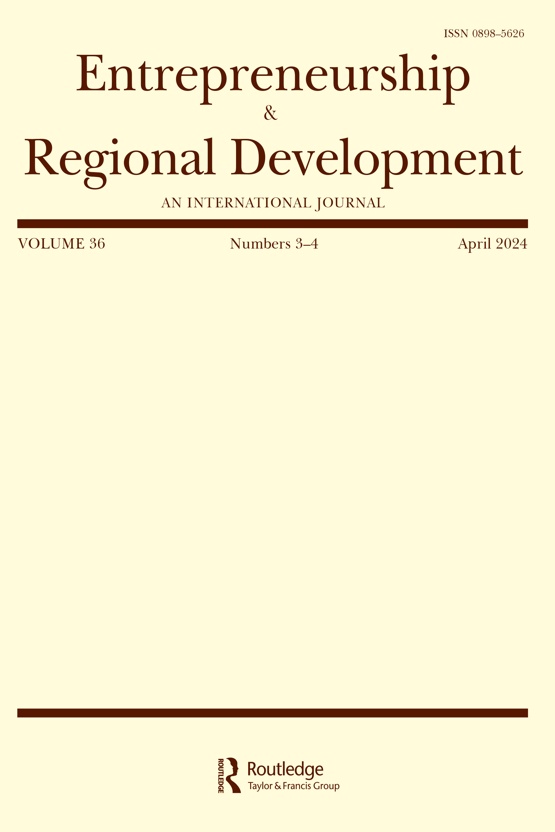Theorizing Disembedding and Re-Embedding: Resource Mobilization in Refugee Entrepreneurship
IF 3.6
1区 经济学
Q2 BUSINESS
引用次数: 14
Abstract
ABSTRACT Forced displacement drastically changes the nature of refugees’ connection to their home countries and requires them to build new ties to their host countries. While refugees undergo the dynamic transformation of their embeddedness after arriving in host countries, previous studies on refugee entrepreneurship have not sufficiently examined the dynamic and procedural nature of refugees’ embeddedness and its influence on their entrepreneurial activities. This study seeks to understand how the process of embedding influences refugees’ resource mobilization in their entrepreneurial activities. Based on 20 interviews with refugee entrepreneurs in Germany, this study revealed that forced detachment from home-country contexts led to a loss of certain resources while simultaneously creating opportunities for refugees to develop resources by building new connections. This study challenges the conventional structural deterministic approach of mixed embeddedness and theorizes disembedding and re-embedding processes of refugee entrepreneurs. The findings suggest that these processes require a cognitive process on the part of entrepreneurial agents to become aware of a loss of resources and to reinterpret the value of their resources. Furthermore, this paper discusses how these processes constrain and enable refugees’ access to resources. The findings offer implications for policymakers of refugee-hosting countries and refugee support organizations.理论化脱嵌入与再嵌入:难民创业中的资源动员
被迫流离失所极大地改变了难民与原籍国联系的性质,并要求他们与东道国建立新的联系。虽然难民在抵达东道国后经历了嵌入性的动态转变,但以往关于难民创业的研究并没有充分考察难民嵌入性的动态性和程序性及其对其创业活动的影响。本研究旨在了解嵌入过程如何影响难民在其创业活动中的资源调动。根据对德国难民企业家的20次访谈,这项研究揭示,被迫脱离母国环境导致某些资源的损失,同时为难民创造了通过建立新的联系来开发资源的机会。本研究挑战了传统的混合嵌入的结构确定性方法,并将难民企业家的脱嵌入和再嵌入过程理论化。研究结果表明,这些过程需要创业代理人的认知过程,以意识到资源的损失并重新解释其资源的价值。此外,本文还讨论了这些过程如何限制和使难民能够获得资源。研究结果为难民收容国和难民支持组织的决策者提供了启示。
本文章由计算机程序翻译,如有差异,请以英文原文为准。
求助全文
约1分钟内获得全文
求助全文
来源期刊
CiteScore
7.90
自引率
10.70%
发文量
52
期刊介绍:
Entrepreneurship and Regional Development is unique in that it addresses the central factors in economic development - entrepreneurial vitality and innovation - as local and regional phenomena. It provides a multi-disciplinary forum for researchers and practitioners in the field of entrepreneurship and small firm development and for those studying and developing the local and regional context in which entrepreneurs emerge, innovate and establish the new economic activities which drive economic growth and create new economic wealth and employment. The Journal focuses on the diverse and complex characteristics of local and regional economies which lead to entrepreneurial vitality and endow the large and small firms within them with international competitiveness.

 求助内容:
求助内容: 应助结果提醒方式:
应助结果提醒方式:


